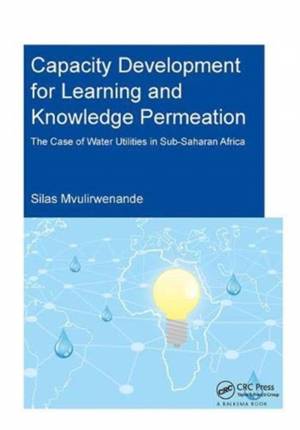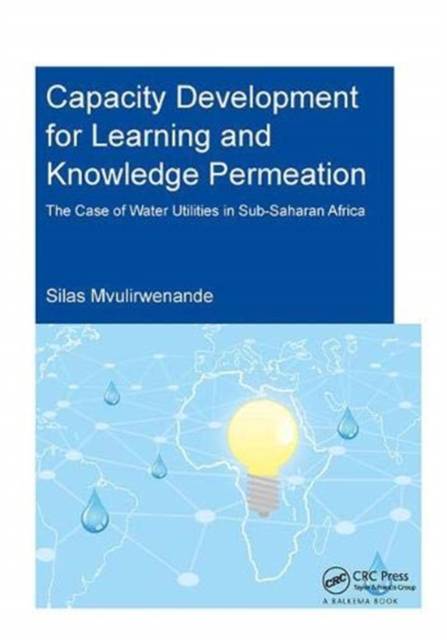
- Afhalen na 1 uur in een winkel met voorraad
- Gratis thuislevering in België vanaf € 30
- Ruim aanbod met 7 miljoen producten
- Afhalen na 1 uur in een winkel met voorraad
- Gratis thuislevering in België vanaf € 30
- Ruim aanbod met 7 miljoen producten
Capacity Development for Learning and Knowledge Permeation
The Case of Water Utilities in Sub-Saharan Africa
Silas MvulirwenandeOmschrijving
After World War II, international development became the world leading development model, but its effectiveness is much debated. Nowadays, it is acknowledged that international development can effectively support development through knowledge and capacity development (KCD). Nonetheless, understanding what capacity really consists of in operational terms and what its development entails remains a challenge.
This book investigates KCD processes in water utilities in Sub-Saharan Africa. The three cases analysed reveal that the learning impact of KCD on utilities depends on whether they are able to close their learning cycle, i.e., to ensure that improved capacity is also translated into mainstream behaviour. This finding challenges conventional wisdom for which KCD translates "automatically" into improved performance. Hence the need to focus KCD evaluation on both capacity improvement and capacity application.
The proposed learning-based framework for KCD identifies two distinct but interrelated stages in KCD, namely knowledge transfer and knowledge absorption. Knowledge absorption usually takes time due to slow organisational processes that govern it. However, in practice it is often taken for granted. The framework also identifies the key factors that shape learning processes in water utilities.
The book argues that water utilities in Sub-Saharan Africa can reinvent themselves by embracing change management approaches and striving to become learning organisations.
Specificaties
Betrokkenen
- Auteur(s):
- Uitgeverij:
Inhoud
- Aantal bladzijden:
- 380
- Taal:
- Engels
- Reeks:
Eigenschappen
- Productcode (EAN):
- 9781138381667
- Verschijningsdatum:
- 27/09/2018
- Uitvoering:
- Hardcover
- Formaat:
- Genaaid
- Afmetingen:
- 175 mm x 246 mm
- Gewicht:
- 452 g

Alleen bij Standaard Boekhandel
Beoordelingen
We publiceren alleen reviews die voldoen aan de voorwaarden voor reviews. Bekijk onze voorwaarden voor reviews.











